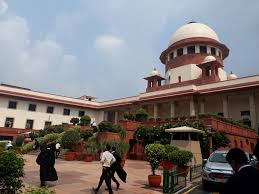The first relates to the true and correct application of the principle underlying the ‘rejection of plaints’ under Order VII Rule 11, Code of Civil Procedure, 1908 [Hereinafter referred to as ‘CPC’.], to the facts of the case. The second question relates to the legality of rejection of a plaint in part. For the reasons to follow, we have held that the High Court has committed an error in passing the order impugned, on both counts. First, by misapplying the well-established principles informing Order VII Rule 11 of the CPC, and second, by rejecting the plaint in part, which is again contrary to the law on the subject. We have, therefore, allowed the appeal and dismissed the application under Order VII Rule 11, CPC. We will first indicate the necessary facts. (Para 2)
As such, the possession of the joint family properties was never parted. It is also pleaded that when the Plaintiffs asked for partition, initially the Defendants did not deny it, but instead, only asked the Plaintiffs to wait till the revenue records were updated so that actual partition could be effected. Hence, Plaintiffs presented a plaint for partition and separate possession. (Para 3)
Four years after the suit was instituted, the Defendants filed a petition seeking rejection of the plaint under Order VII Rule 11, CPC. While the Trial Court dismissed the application on the ground that the plaint does disclose a cause of action, the High Court, by the impugned order, observed that the property in survey No. 76/1 (described in schedule A of the plaint) was sold way back in 1919 via a registered Sale Deed. The High Court reasoned that the Plaintiffs did not deny the sale, but only urged that there was a subsequent re-conveyancing of the property back to the joint family, without a corresponding mutation of revenue records. Impressed by the fact that the Plaintiffs neither produced any evidence to challenge the Sale Deed from 1919, nor sought any declaratory relief against the Sale Deed, High Court proceeded to allow the application under Order VII Rule 11, CPC in part, and rejected the Plaint with respect to Schedule-A property. Shri Yogeshwaran submitted that the High Court committed an error in allowing the Revision and consequently, the application under Order VII Rule 11, CPC. (Para 4)
In simple terms, the true test is first to read the plaint meaningfully and as a whole, taking it to be true. Upon such reading, if the plaint discloses a cause of action, then the application under Order VII Rule 11 of the CPC must fail. To put it negatively, where it does not disclose a cause of action, the plaint shall be rejected. (Para 7)
If the statements in the plaint are taken to be true, the joint family properties may enure to the benefit of its members and they may well be available for partition. This is a matter of trial, the result of which would depend upon the evidence adduced by the Plaintiff. At this stage, we are not concerned with the correctness of the averments, except to state that the Plaintiffs have the carriage of the proceedings, and have to discharge the heavy burden of proving their case. In so far as the application under Order VII Rule 11 of CPC is concerned, this Court will proceed only that far, to examine whether the plaint discloses a cause of action, and no further. (Para 9)
The High Court committed an error by examining the merits of the matter. It pre-judged the truth, legality and validity of the sale deed under which the Defendants No. 4 to 14 claim title. This is not to say that the Plaintiffs have any less burden to prove their case or even that their case is probable. Simply put, the High Court could not have anticipated the truth of the averments by assuming that the alleged previous sale of the property is complete or that it has been acted upon. The approach adopted by the High Court is incorrect and contrary to the well-entrenched principles of considering an application under Order VII Rule 11, CPC. Under these circumstances, we set aside the judgment and the order passed by the High Court and dismiss the application under Order VII Rule 11, CPC, and restore the suit even with respect to properties mentioned under Schedule A of the Plaint. (Para 10)
There is yet another reason why the judgment of the High Court is not sustainable. In an application under Order VII Rule 11, CPC a plaint cannot be rejected in part. (Para 11)
We have no hesitation in holding that the High Court committed an error in rejecting the plaint in part with respect to Schedule-A property and permitting the Plaintiffs to prosecute the case only with respect to Schedule-B property. This approach while considering an application under Order VII Rule 11, CPC is impermissible. We, therefore, set aside the judgment and order of the High Court even on this ground. (Para 12)
SUPREME COURT OF INDIA
2023 STPL(Web) 397 SC
[2023 INSC 964]
Kum. Geetha, D/O Late Krishna & Ors. Vs. Nanjundaswamy & Ors.
Civil Appeal No. 7413 of 2023 (Arising out of S.L.P. (C) No. 8147 of 2016)-Decided on 31-10-2023
https://stpllaw.in/wp-content/uploads/2023/11/2023-STPLWeb-397-SC.pdf







